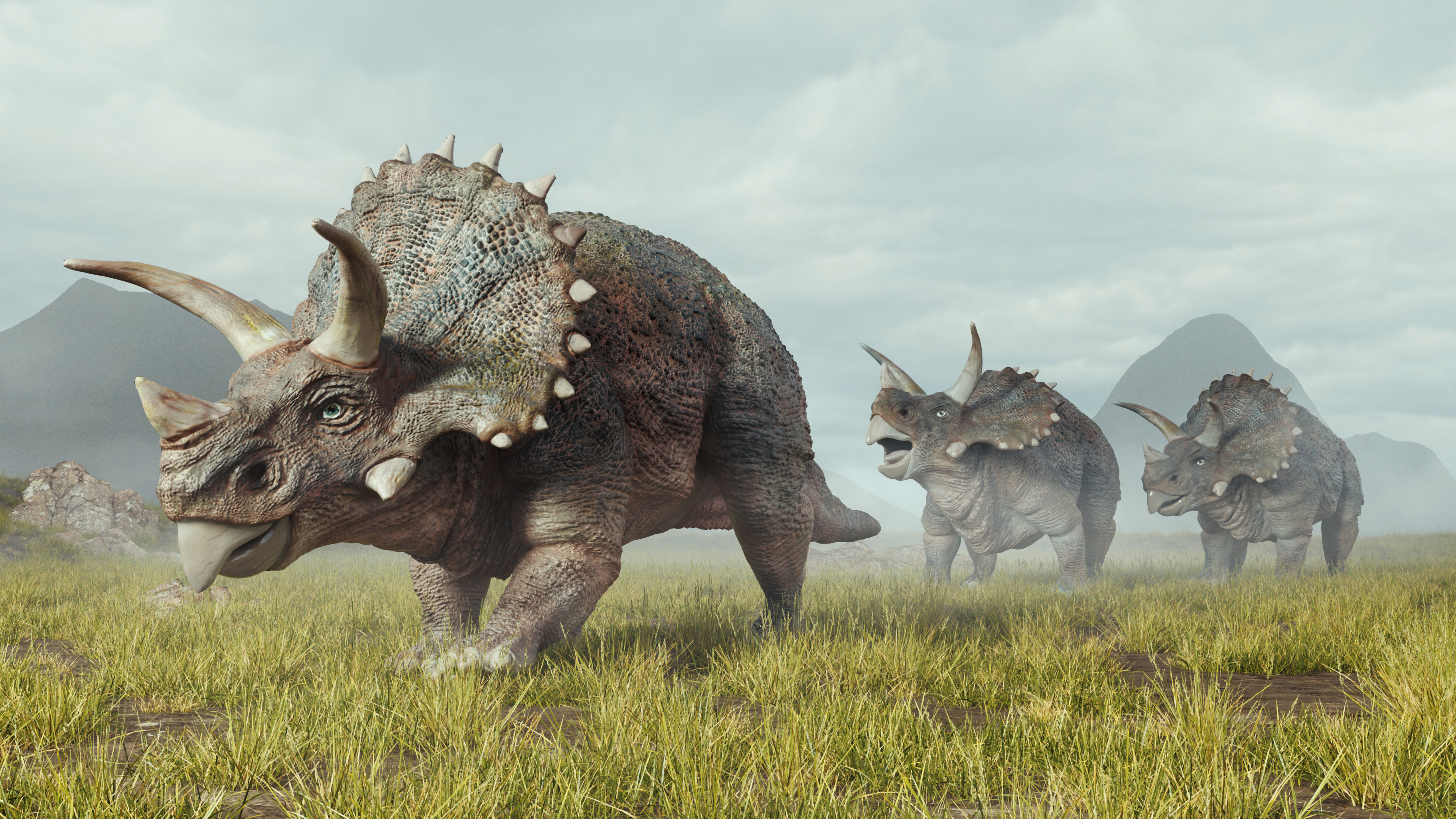
Imagine living in a world with a bus-sized dinosaur with “three horns” fighting epic battles with a fearsome predator like T-Rex (or so the legend goes). From everything we’ve gathered so far, it’s not hard to see that Triceratops horridus, also known as Triceratops (genus), is a separate beast.
Triceratops is a four-legged dinosaur of ceratopsia family – herbivores of the Cretaceous period with a bony tip and a distinct beak-like bone. They lived in the western part of North America, in an area that now consists of dry prairies and wastelands. At least that’s where Triceratops fossils are widely found.
Paleontologist OC Marsh officially classified it in 1889, but only after other scientists confused it with a bison, given its size and anatomical similarities. Scientists believe Triceratops measured approximately 30 feet long, weighing approximately 12,000 to 16,000 pounds.
Interesting facts about Triceratops
Whether you are a dinosaur enthusiast or not, let’s face it, we are still uncovering many mysterious aspects about these fascinating creatures! Here are five intriguing facts about T. horridus You must know.
1. The last non-avian dinosaur to inhabit Earth
If the picture of T. horridus collision with T. rex excites you, now imagine the last battle of his life, 66 million years ago. A A 7.5 mile wide asteroid smashed into Earth (in the Yucatan Peninsula region of Mexico), destroying 75 percent of life, including that of this recognizable species.
After three million years of roaming this planet and evolving after the cataclysmic event occurred, Triceratops got up one of the last non-avian dinosaurs to inhabit the Earth—a distinction reserved for the few.
Read more: Did humans and dinosaurs ever live together?
2. There are only two types Triceratops: Horridus or Prorsus
Based on differences in cranial anatomy, paleontologists originally thought there were 16 species Triceratops. They currently only recognize two types: T. horridus and Triceratops prorsus.
Although there are similarities between the two species – both massive and bulkier than an elephant – you can also notice slight differences. For example, T. horridus it had a shorter nasal horn, elongated muzzle, and forward-facing upper horns. On the other hand, T. prorsus it held up a shorter muzzle, a longer nasal horn, and more upright upper horns.
Studies on the evolution of the two species have led some paleontologists to speculate that they came from an earlier line of dinosaurs. Yet they also suggest that they both lived on Earth during the same period.
However, a 2014 study evolutionary trends in dinosaurs contradicts this hypothesis. Analysis of over 50 skulls from the Hell Creek Formation found that the skulls of T. horridus and T. prorsus on different rock surfaces: horror in the lower layers, prorusus in the upper layers. Interestingly, the skulls of both species appear in the middle layers.
These findings led scientists to suspect that T. horridus adapted to the other breed (T. prorsus) within one or two million years.
3. Triceratops Friezes can be used for mating
For centuries, scientists have studied Triceratops fossils to understand their behavior. And frills in general are of great interest – not to say a little controversial.
Earlier findings suggest that the bone tips may have been used as a shield against predators. The evidence shows some diseases or wounds on fossils in the areas of steering wheels and hornsconsistent with bite marks from Tyrannosaurus. Also, these giant beasts may have been fighting each other.
Other initial hypotheses about ornaments suggest this Triceratops uses them as temperature-controlled radiators. Some have even theorized that the tips may have been a means of identification between individual ceratopsian species.
However, recent theories have debunked these claims. It is assumed that tit plays a role in the process of sociosexual selection helping the species subdue its enemies and choose its mates.
Read more: How did dinosaurs have sex?
4. Triceratops Fossils are among the most excavated
The Hell Creek Formation in Montana is a region particularly rich in Triceratops fossils. Over the years, paleontologists have had their hands full digging up these fossils—like Triceratops skeletons are the most popular fossils they find.
What else? They could identify consistent patterns of behavior in this group of dinosaurs. Paleontologists have almost never found their fossils in groups of three or more, leading scientists to believe that, far from their ceratopsian counterparts, Triceratops inclined to live alone.
5. If Triceratops The skeleton is complex, the teeth are unique
The T. horridus also had a a colossal skull of approximately 3 feet. In fact, it was so large that it was among the largest land creatures.
Apart from the protruding horns above the eyes and muzzle, T. horridus possessed about 19 to 26 small spikes, the so-called epoccipitals, on the steering wheels. The bony curves stood at the back of the skull.
Triceratops’ teeth also played a key role in their diet. Although they were herbivorous dinosaurs, T. horridus it had a strong upper and lower jaw, forming covered rows of serrated teeth. With parrot-like beaks (called rostral), their teeth were vital for reaching and tearing plants that were close to the ground. Until now, scientists suggest that the beak-like mouth helped the dinosaur ate hard-to-reach, dense vegetation.
Read more: What we know about the stubborn Pachycephalosaurus

